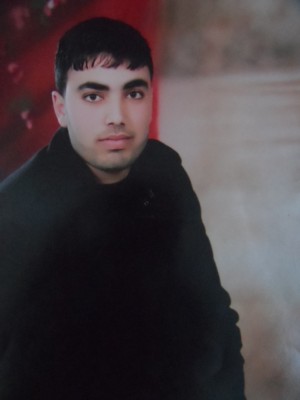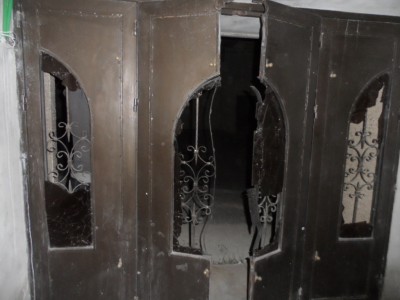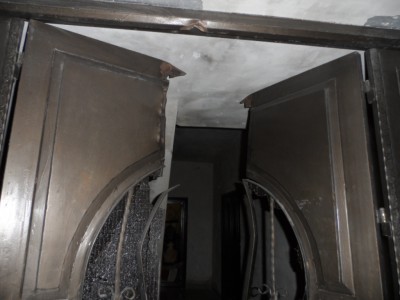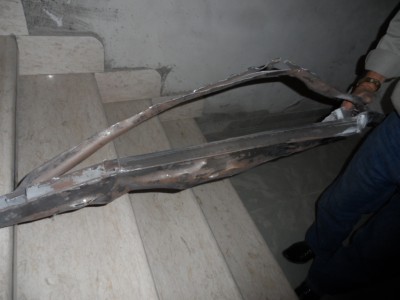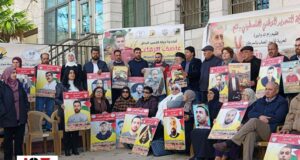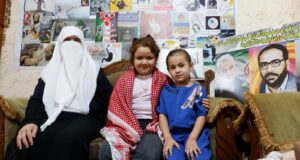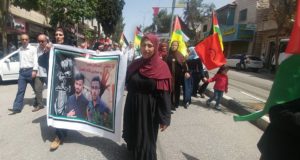22 May 2012 | International Solidarity Movement, Nablus Team | Kafr Qalil, Occupied Palestine
The Israeli army invaded seven family homes in the village of Kafr Qalil, south of Nablus, between 1am and 2am on 20th May. They trashed the properties and people’s possessions and stayed in them for several hours apiece. Lastly, they arrested a university student, Saleh al-Amer, 22.
Instead of just ringing the bell, they obliterated the homes’ heavy metal doors, creating fear and manifesting uncertainty for the innocent residents. They were given no reason for the destruction of their property despite repeatedly asking for one. Nader Soloman, one of those who had his home invaded, having his 2 and 4 year-old daughters terrified in the process, even spoke in Hebrew but answers were still refused. The army ransacked their homes, ordered the adults and children about, broke their furnishings and emptied cupboards of clothes, throwing them on the floor to then continually walk all over them. The army remained in the homes for 4 to 5 hours.
At 2am the army changed tact and knocked on the door of the al-Amer family house, home to eleven people. The army didn’t enter the house and asked the family’s father who the sons of the household were. He said the two names and the officer requested Saleh, was then placed under arrest and taken to Huwwara military base for a few hours, before being moved to Salem prison on the Green Line for another couple of hours. At which point he was able to contact his lawyer and tell him of his whereabouts before being transferred to Megiddo prison in Israel.
The younger children are now traumatized by the event, crying when they see images of the army on the TV, while other family members are unable to sleep. Saleh’s younger sister explained to the activists who came to speak with the family that Saleh had done nothing wrong; “my brother is the most lovely person, we can’t live without my brother. He needs to come back to his house, to his family, his village, study”. Saleh had just finished his first-year university exams and was happy about the changes to the family home to accommodate him and his soon-to-be wife. Saleh studied hard and also worked to bring money into the home, he enjoyed sport and caring for and playing with the younger children.
Saleh was arrested two years previously and held in administrative detention for five months, only seeing his family once, when they were in court. At that time the army officer during his arrest told him he was being arrested so that he wouldn’t be able to go back to university.
Administrative detention is the imprisonment of Palestinians without charge or trial by administrative rather than judicial procedure. International law, as set out in the Fourth Geneva Convention, allows for it only in very extreme cases of ensuring security and even then grants the right for those interned to be held within the occupied territory with support to be given to their family and dependents. They are also due greater privileges than ordinary prisoners. The Israeli government has claimed that administrative detention is not an arbitrary form of internment, in part, because detention orders are subject to review. However they can be renewed indefinitely every six months, leaving prisoners and their loved ones with no countdown to their release.
 International Solidarity Movement Nonviolence. Justice. Freedom.
International Solidarity Movement Nonviolence. Justice. Freedom.
